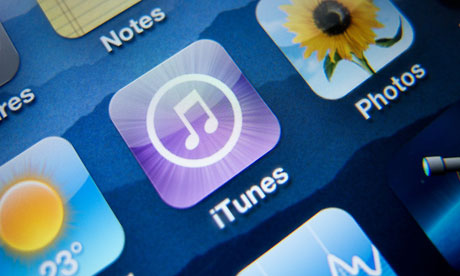Manuel Castells, the leading scholar of cyberspace, has coined a neat term to describe our current mental state in relation to the internet: "informed bewilderment". Our problem is not that we are short of information about the phenomenon: on the contrary, we are awash with numbers. The problem is that we don't know what they mean.
With that in mind, let us peruse Ofcom's ninth annual communications market report . This is the most intensive annual survey we have of what's happening in our media ecosystem. The only other studies that come anywhere near it are the Oxford internet surveys conducted by the Oxford Internet Institute – and they focus exclusively on the net, whereas Ofcom takes in TV, radio, telecoms and letter post (aka snail-mail) as well.
The Ofcom document runs to 411 pages, so it is custom-built for empirical masochists. Given that life is short, and you may have other things to do on a Sunday morning, I will just focus on some findings in the report that leapt out at me, and ponder their implications. The survey shows that home internet access in the UK rose by 3% between 2011 and 2012 and now stands at 80%. So eight out of 10 people have access to the network. And the speed of that access is increasing: by the first quarter of 2012, for example, 76% of UK homes had a broadband connection of some description. Equally interesting is the discovery that the largest rise in internet access over the last year – 9% – was among 65 to 74-year-olds. So the idea of "silver surfers" as an endangered minority needs recalibrating.
Next, we find that two-fifths of UK adults are now smartphone users. Take-up has risen from 27% in 2011 to 39%. This is interesting because the mobile networks and the telecoms industry have in the past consistently underestimated the popularity of internet-enabled mobile phones. It's also one of the reasons why Nokia finds itself in so much trouble.
It's hard to exaggerate the significance of the smartphone tsunami, especially when we see Ofcom's discovery that more than four in 10 smartphone users say their phone is more important for accessing the internet than any other device. Smartphones are increasingly central to consumers' lives – for online shopping (57%), social networking (30%), tweeting (23%) and even watching TV/film content (22%). I've seen this time and again among family, colleagues, friends and acquaintances: the moment people acquire smartphones, their reliance on PCs or laptops declines, sometimes dramatically. But up to now those observations had a purely anecdotal status. The Ofcom report changes that.
The key thing about smartphones is that they are essentially handheld networked computers which also happen to be able to make voice calls. This is what Steve Jobs realised before most industry figures, and it explains why Apple has driven the mobile revolution. The Ofcom report is a testament to Jobs's perceptiveness, not just because of what it reveals about the centrality of smartphones in their users' lives, but also because it shows that the use of mobile phones for voice calls has peaked. The volume of calls made from mobile phones fell for the first time: down 1.1% on 2010 figures. Mobile voice revenues fell by 0.9% to £10.5bn while mobile messaging and handset data revenues increased 5.5% to £4.6bn.
Other highlights from the Ofcom report include the revelation that each household in the UK has on average three different types of internet-enabled device; that a third of people aged 16 to 24 live in homes where mobiles are the sole form of telephony; that users are spending longer on YouTube (where the time per person on the site increased by 42% between March 2011 and March 2012, to 1.5 hours); that online retailing increased by 30% in a year and is now worth £2.6bn a year. Oh and I almost forgot the most staggering revelation of all – that spending on internet advertising is now greater than on any other category of advertising. In 2011 advertising spend on the internet was £4.8bn, exceeding the spend not just on print (£3.9bn) but also on TV (£4.2bn).
So – to return to Professor Castells's observation – what does this mean? Firstly that the distinction between the virtual and the real worlds has essentially evaporated: the internet is now part of "normal" life. Secondly that people will increasingly access the net via tethered appliances (smartphones and tablets), with all that that implies in terms of corporate control. And thirdly, that providers of cloud computing will inherit the Earth, because all mobile devices are essentially windows on to the cloud. So, clearly, the future's mobile. The only question is whether it's also bleak. To find out we'll have to wait for Ofcom's 19th report. Assuming it's still around, that is.











